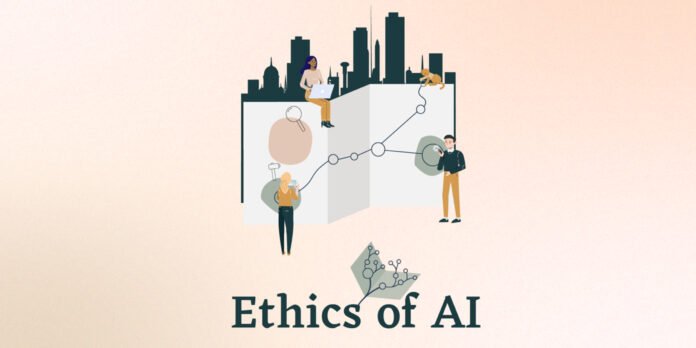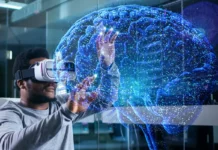Artificial intelligence (AI) is transforming the way we live, work, and interact with each other. From self-driving cars and personalized recommendations to virtual assistants and chatbots, AI is already a part of our daily lives. However, with great power comes great responsibility, and AI also raises important ethical concerns that need to be addressed.
In this article, we will explore the ethics of AI, the potential risks and benefits of intelligent systems, and the challenges that need to be overcome to navigate the ethical implications of AI.
What is AI?
AI is a broad field of computer science that focuses on creating intelligent machines that can perform tasks that typically require human intelligence, such as visual perception, speech recognition, decision-making, and language translation. AI can be divided into two categories: narrow or weak AI, which is designed to perform a specific task, and general or strong AI, which is designed to perform any intellectual task that a human can do.
AI algorithms are typically trained on large datasets, using machine learning techniques such as supervised learning, unsupervised learning, and reinforcement learning. AI algorithms can also be designed to learn from experience, improving their performance over time.
Potential Risks of AI
AI has the potential to transform many industries and enhance our lives in countless ways, but it also raises several potential risks and ethical concerns that need to be addressed.
- Bias: AI algorithms can be biased, particularly when they are trained on biased datasets. This can lead to unfair and discriminatory outcomes, particularly in areas such as hiring, lending, and criminal justice.
- Privacy: AI algorithms can raise privacy concerns, particularly when they are used to collect and analyze personal data. This can lead to surveillance and invasion of privacy, particularly when used by governments and corporations.
- Unemployment: AI has the potential to automate many jobs, particularly in areas such as manufacturing, transportation, and customer service. This can lead to job displacement and unemployment, particularly for low-skilled workers.
- Autonomous Weapons: AI has the potential to be used in autonomous weapons, which can make decisions about who to target and kill without human intervention. This raises important ethical concerns about the use of AI in warfare and the potential for unintended consequences.
Potential Benefits of AI
Despite the potential risks of AI, there are also many potential benefits that can be realized through the development and use of intelligent systems.
- Efficiency: AI can automate many tasks and processes, improving efficiency and reducing errors. This can lead to cost savings and improved productivity, particularly in areas such as manufacturing and logistics.
- Personalization: AI can be used to create personalized recommendations and experiences, improving customer satisfaction and loyalty. This can lead to increased sales and revenue for businesses.
- Healthcare: AI can be used to improve diagnosis and treatment of medical conditions, reducing errors and improving patient outcomes. AI can also be used to improve drug development and clinical trials, reducing costs and improving the speed of research.
- Environmental Impact: AI can be used to monitor and manage natural resources, such as water and energy, improving sustainability and reducing waste. AI can also be used to monitor and predict natural disasters, improving preparedness and response.
Challenges
While AI has tremendous potential, there are several challenges that need to be overcome to navigate the ethical implications of AI. Here are some of the challenges facing AI:
- Bias: AI algorithms can be biased, particularly when they are trained on biased datasets. Ensuring that AI algorithms are fair and unbiased is critical for their adoption and success.
- Transparency: AI algorithms can be opaque, particularly when they are used to make decisions about people’s lives. Ensuring that AI algorithms are transparent and interpretable is critical for accountability and trust.
- Privacy: AI algorithms can raise privacy concerns, particularly when they are used to collect and analyze personal data. Ensuring that AI algorithms are designed to protect privacy and prevent unauthorized access to sensitive data is critical for their adoption and success.
- Regulation: AI is a rapidly evolving field, and regulations may not keep up with the pace of technological development. Ensuring that AI is regulated appropriately, and that ethical considerations are taken into account, is critical for ensuring that AI is used for the greater good.
- Human Supervision: AI algorithms can make decisions that affect people’s lives, but they are not infallible. Ensuring that there is human oversight and accountability for AI algorithms is critical for ensuring that they are used ethically and responsibly.
Conclusion
AI has the potential to transform many industries and enhance our lives in countless ways, but it also raises several potential risks and ethical concerns that need to be addressed. Ensuring that AI is developed and used ethically and responsibly is critical for ensuring that its benefits are realized while minimizing its risks.
Addressing the ethical implications of AI will require collaboration and engagement from a variety of stakeholders, including policymakers, industry leaders, and the public. Ensuring that AI is developed in a way that is fair, transparent, and accountable is critical for building trust and ensuring that AI is used for the greater good.
As the field of AI continues to evolve, we can expect to see new breakthroughs and innovations that will push the boundaries of what is possible with intelligent systems. However, as we embrace these new technologies, we must also remain vigilant and thoughtful about their implications for society and the world around us. By working together, we can harness the power of AI to create a better and more equitable world for everyone.
Google News | Telegram
















